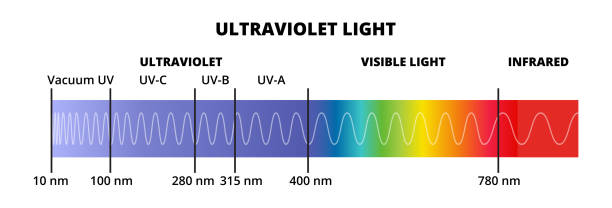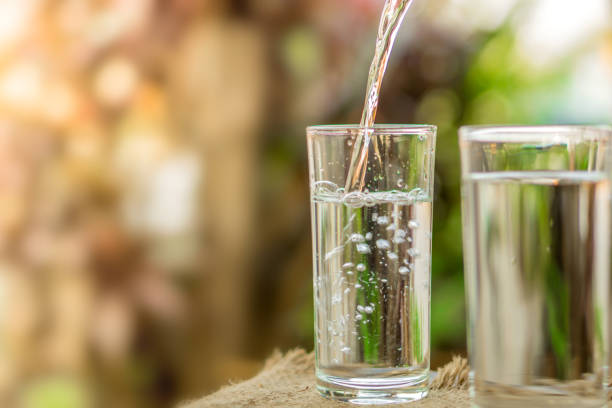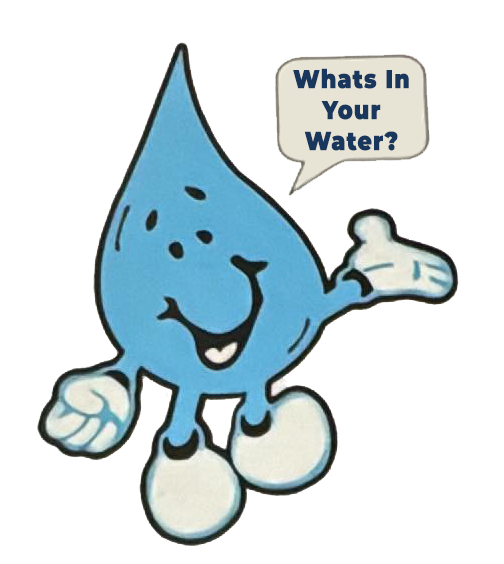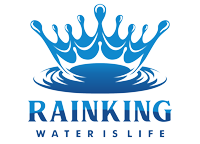UV filtration In an increasingly polluted world, it is becoming increasingly important to take extra steps to ensure the quality of drinking water. One of the most popular solutions to this problem is the installation of UV filtration systems. Though they may not be as commonplace as other filtration devices, these systems offer many unique advantages that are worth considering. In this blog post, we will be taking an in-depth look at the benefits of UV filtration systems and what they can do to improve the quality of your drinking water. UV filtration systems use a powerful combination of UV light and special filters to eliminate harmful bacteria or chemicals from water. This technology relies on the basic principle of electromagnetic radiation, which is when substances are exposed to a certain type of light, the light can penetrate and break down the molecules in the substance. In the case of UV filtration systems, the UV light is used to break down the molecules of bacteria and other pathogens in the water, rendering them harmless. This provides you with clean, safe drinking water without the use of any additional chemicals.
Introduction
Introduction
Ultraviolet (UV) filtration systems are the most effective and popular way to purify water today. The process is simple: UV light is used to kill bacteria, viruses, and other microorganisms to make your water safe and clean to drink. UV light has been used for water treatment since the early 1900s, and the technology is constantly improving. In this article, we’ll explore the benefits of using a UV filtration system and why it’s a smart choice for your home or business. We’ll also cover how this system works, so you can make an informed decision when it comes to choosing the best water purification system. So, let’s jump in and discover the advantages of UV filtration systems!
What is a UV Filtration System?
A UV filtration system is a type of water filtration technology designed to take existing water and filter it through ultraviolet (UV) light to remove harmful bacteria, viruses, and other microorganisms. UV filtration systems can be used in both residential and commercial settings to maintain safe drinking water. The major benefit of UV filtration is that it does not introduce any chemicals or ions into the water, making it a safe and highly effective way to purify water. In addition, UV filtration systems can be installed in a variety of spaces, from large municipal water plants to the small kitchen sink.
The most common type of UV filtration system utilizes a UV Lamp that emits UVC light at 254 nanometers. This type of light has been scientifically proven to have a destructive effect on microorganisms, breaking apart their DNA and killing them in the process. The key to UV filtration is that the water must be exposed to the lamp for a specified amount of time in order for the light to take effect. Depending on the size of the system, this can take anywhere from a few seconds to several minutes.
Another type of UV filtration system is known as a UV disinfection system, which is designed to kill off organisms that cause diseases such as cholera and typhoid. UV disinfection systems use a different type of lamp that emits UV light at 185 nanometers, which is more effective against viruses and bacteria than UVC light.
The benefits of UV filtration are clear – it is an economical and environmentally friendly way to filter drinking water and reduce the risk of waterborne illnesses. With its adaptability to different water systems, UV filtration is quickly becoming the preferred method of water filtration.
Benefits of a UV Filtration System
Benefits of a UV Filtration System
Installing a UV filtration system in your home is more than just a good idea, it’s a necessary health measure. This modern filtration system uses ultra-violet lights to disinfect the air and water entering the house, keeping you safe from harmful microorganisms. Here are some of the key benefits of equipping your property with a UV filtration system:
First and foremost, a UV filtration system can prevent diseases, such as gastrointestinal illnesses, by eliminating microorganisms that contaminate the incoming water supply. The system uses powerful UV lights that target, kill and reduce bacteria, germs, and other dangerous contaminants which can cause serious health risks. This means that those living in your home or drinking from the water supply will be significantly less likely to come down with a waterborne illness.
UV filtration systems also create a barrier that stops mold and mildew from entering the home. Mold spores are incredibly difficult to eradicate once they settle in, so blocking them as soon as possible is essential. The UV light powder eliminates mold and mildew before it enters your property, and keeps the air free from dust, pollen, dust mites, and other airborne pollutants, giving you peace of mind that your home is completely free of allergens.
Finally, a UV filtration system helps to protect your plumbing fixtures by preventing calcium and other mineral buildups. This minimizes the costs of repairs and replacements further down the line, meaning fewer trips to the plumber and more money saved on costly maintenance.
When it comes to safeguarding your health and protecting your home, a UV filtration system should be your number one choice. With its powerful germ-eliminating capabilities and long-term cost savings, investing in a UV filtration system is an investment that truly pays off.
Factors to Consider When Choosing a UV Filtration System
Factors to Consider When Choosing a UV Filtration System
When selecting a UV filtration system, many factors should be taken into consideration. These include the size and type of the system, its ability to filter water effectively, the cost, the ease of installation and maintenance, as well as whether or not it can be used with other types of water treatment systems.
The size and type of the system should match the needs of the site it is intended for. Smaller systems may be appropriate for smaller sites, while larger systems may be necessary for larger sites. The system should also be designed specifically for the location so that it is properly sized for the water flow rate of the site.
The system should be able to filter out contaminants from the water. The UV energy used to kill bacteria and viruses should be sufficient for the size of the system and the amount of water that needs to be treated. In addition, the system should have a proper disinfection system to ensure that all unwanted organisms are eliminated.
The cost of the system should also be taken into consideration when making the purchase. The more expensive systems may have additional features that make them more efficient but may not be necessary for smaller sites. It is important to research the different systems and compare their features and prices before making a decision.
Installation and maintenance of the system should be easy to manage. Most systems come with instructions and support if needed, but it is important to read through these instructions carefully before using the system. Additionally, regular maintenance should also be done to ensure the system is working correctly at all times.
Finally, the system should be compatible with other types of water treatment systems, such as carbon filters or reverse osmosis filters. This ensures that the water quality remains high even when the system is not in use, ensuring the safety of the water for drinking and bathing.
Choosing the right UV filtration system is an important decision. By taking the time to research the different systems and evaluate their features, costs, and maintenance requirements, one can ensure that the system selected will meet their needs and provide effective safe water treatment.



Cost of Installing a UV Filtration System
Cost of Installing a UV Filtration System
Installing a UV filtration system can be a cost-effective investment for those looking to purify their water and reduce the risk of exposure to unpleasant odors, bacteria, and other contaminants. Depending on your system’s size and complexity, the cost to install a UV filtration system can range from a few hundred to several thousand dollars. Here we discuss some of the factors that contribute to the cost of installing a UV filtration system.
The first factor is the size of the UV filtration system. Generally speaking, larger systems require more installation time and materials, resulting in a higher cost. For example, bigger commercial systems may require piping, connecting various parts, and employing professional technicians. On the other hand, a small residential system can usually be installed quickly and easily with basic tools and parts.
Another factor is the type of water that needs to be filtered. Heavily contaminated water may require stronger UV filtration systems in order to treat the water effectively. As a result, these systems tend to be costlier than those designed for cleaner water. The type of UV lamp used will also influence the cost of a UV filtration system; typically, UV lamps with higher intensity will be more expensive.
Professional installation is often required for UV filtration systems, due to safety and warranty concerns. Professional installation typically includes labor and plumbing costs. However, sometimes customers can install the system themselves using the manufacturer’s instructions and save money.
In summary, the cost of installing a UV filtration system can range from a few hundred to several thousand dollars depending on the size, type of water, and components used. Professional installation may be necessary to ensure the UV filtration system works correctly and lasts for many years.
Maintaining a UV Filtration System
Maintaining a UV Filtration System
Maintaining a UV filtration system is key to ensuring its effectiveness in sanitizing water. If the filter is not maintained properly, it can lead to decreased efficiency and create an environment that could become toxic over time.
A few basic maintenance steps should be taken when using a UV filtration system, such as cleaning the light chamber weekly and changing the lamps annually. It’s also important to keep the system clean by regularly hosing off the quartz sleeve and wiping down any dust or debris from the system. Additionally, you should regularly inspect the quartz sleeve for cracks or scratches and change it if needed.
When changing the lamps, make sure to wear gloves and safety glasses and follow the manufacturer’s instructions. Proper disposal of old lamps is also essential to protect the environment. Also note that at times, mineral buildup can occur in the filter, which should be cleaned out to ensure optimal functionality.
The water should also be tested regularly to make sure the system is working correctly. If the results show a decrease in effectiveness, the lamp may need to be changed sooner than expected or the filter may need to be serviced. In addition, make sure to check the voltage to ensure it meets the requirements of the UV filtration system.
Following these simple steps is essential to ensure the UV filtration system is functioning as efficiently as possible. Regular maintenance will also help to extend the life of the system and maximize the productivity of the filter.
Conclusion
Conclusion
The use of UV filtration systems is proven to be an effective and cost-efficient way to ensure safe drinking water. By eliminating harmful bacteria, viruses, and other microorganisms, these systems provide clean water for drinking and everyday use. After thoroughly evaluating the process and benefits of UV filtration systems, it can be concluded that these systems are an excellent solution for providing clean, safe drinking water. Not only are they cost-efficient, but they also provide peace of mind knowing that your drinking water is free of any microbial contamination. Ultimately, the advantages of UV filtration outweigh the cost and hassle of installation, making them an ideal choice for households.



